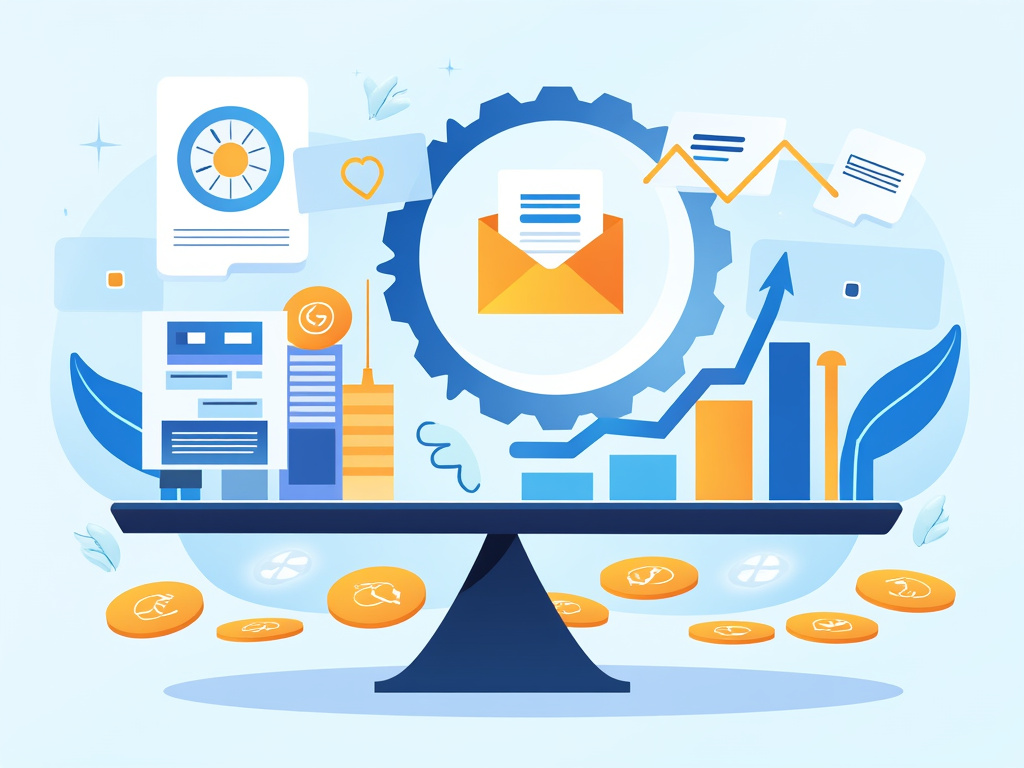Sales Success: A Guide to Ecommerce Email Marketing Automation Mastery

Email marketing is an essential component of any successful e-commerce strategy. But to truly unlock its potential, you need to master automation. With the right tools and techniques, you can turn your email marketing efforts into a powerful revenue-generating machine. Let’s dive into how to harness the full capability of e-commerce email marketing automation and supercharge your sales.
Understanding Email Marketing Automation
Email marketing automation is the process of using software to send timely, relevant messages to your customers based on certain behaviors and triggers. Imagine waking up to a list of customers who have engaged with your brand while you were sleeping. That’s the magic of automation!
The beauty of automation lies in its ability to personalize communication at scale. With the right setups, you can automate segments of your audience and send them tailored messages that resonate on a personal level, leading to higher open rates and increased sales.
Choosing the Right Automation Tool
Selecting the right email marketing automation tool can make or break your strategy. One standout solution in this space is Incomaker. This platform is designed specifically for e-commerce businesses, offering a straightforward interface that allows you to set up automated email sequences with ease. By understanding your audience’s journey, you can create targeted campaigns that seamlessly engage your customers.
When choosing an automation tool, consider the following:
- User Interface: Is it easy to navigate, or will it feel like a maze?
- Integration: Does it easily connect with your e-commerce platform (like Shopify, WooCommerce, or Magento)?
- Features: Does it provide segmentation, A/B testing, and analytics to track performance?
- Support: Is there accessible customer support if you run into issues?
Segmentation is Key
To truly optimize your e-commerce email campaigns, segmentation is vital. By dividing your mailing list based on customer behavior, purchase history, geographic location, or even lifecycle stage, you can send messages that feel more personal and relevant. This leads to higher engagement and conversion rates.
For example, customers who have abandoned their carts can receive a targeted reminder email offering an incentive to complete their purchase, while your loyal customers can be rewarded with exclusive discounts or early access to new products.
Timing is Everything
With automation, timing your messages becomes effortless. Your e-commerce store runs 24/7, and so should your marketing efforts. Automated emails can be triggered based on specific actions such as a purchase confirmation or a post-visit follow-up.
Consider these automation workflows:
- Welcome Series: Greet new subscribers with a series of emails introducing your brand and offering a special discount.
- Abandoned Cart Emails: Remind customers of what they left behind with a friendly nudge, perhaps offering a small discount to encourage resolution.
- Post-Purchase Follow-Up: Thank customers for their purchase, suggest related products, and ask for feedback.
- Re-Engagement Campaigns: Win back inactive customers with tailored offers or updated content.
Personalization Beyond Names
While including the customer’s name is a good start, personalization can go much deeper. Use data to craft emails that resonate. Consider segmenting by previous purchases and tailoring your offerings accordingly.
For instance, if a customer bought a travel backpack, you could recommend accessories that complement their purchase, such as packing cubes or travel-sized toiletries. This approach not only drives sales but also enhances the customer experience, making them feel valued and understood.
Testing, Analyzing, and Iterating
The beauty of automation is that it allows you to gather valuable data with minimal effort. Use A/B testing to compare subject lines, content formats, and CTAs. Analyze the open and click-through rates to understand what resonates with your audience.
Look for trends and insights in your analytics. Regularly reviewing these metrics will help you refine your campaigns, optimizing for engagement and conversion. For instance, if you notice higher engagement on the weekends, adjust your sending schedule to align with that behavior.
Creating Compelling Content
Great emails start with great content. Make sure your messages are visually appealing, easy to read, and offer real value.
Combine strong visuals with concise, compelling copy. Use your brand’s voice to keep it authentic. Share product highlights, tips, or user-generated content that reflects the community surrounding your brand.
An effective email isn’t just about sales; it’s also about building relationships. Provide educational content that elevates your brand as a thought leader in your niche. Whether it’s how-to guides, styling tips, or behind-the-scenes insights, keep your audience engaged.
The Road to Sustained Success
Mastering e-commerce email marketing automation takes time, experimentation, and dedication. With tools like Incomaker at your fingertips, your e-store can engage customers in meaningful ways that lead to sales success.
As you implement these strategies, remember that the goal is to foster relationships, provide value, and make the shopping experience enjoyable for your customers. In the bustling world of e-commerce, those brands that prioritize their customer relationships through smart and timely email communication will rise above the noise. Embrace the power of automation, and watch your sales climb!



